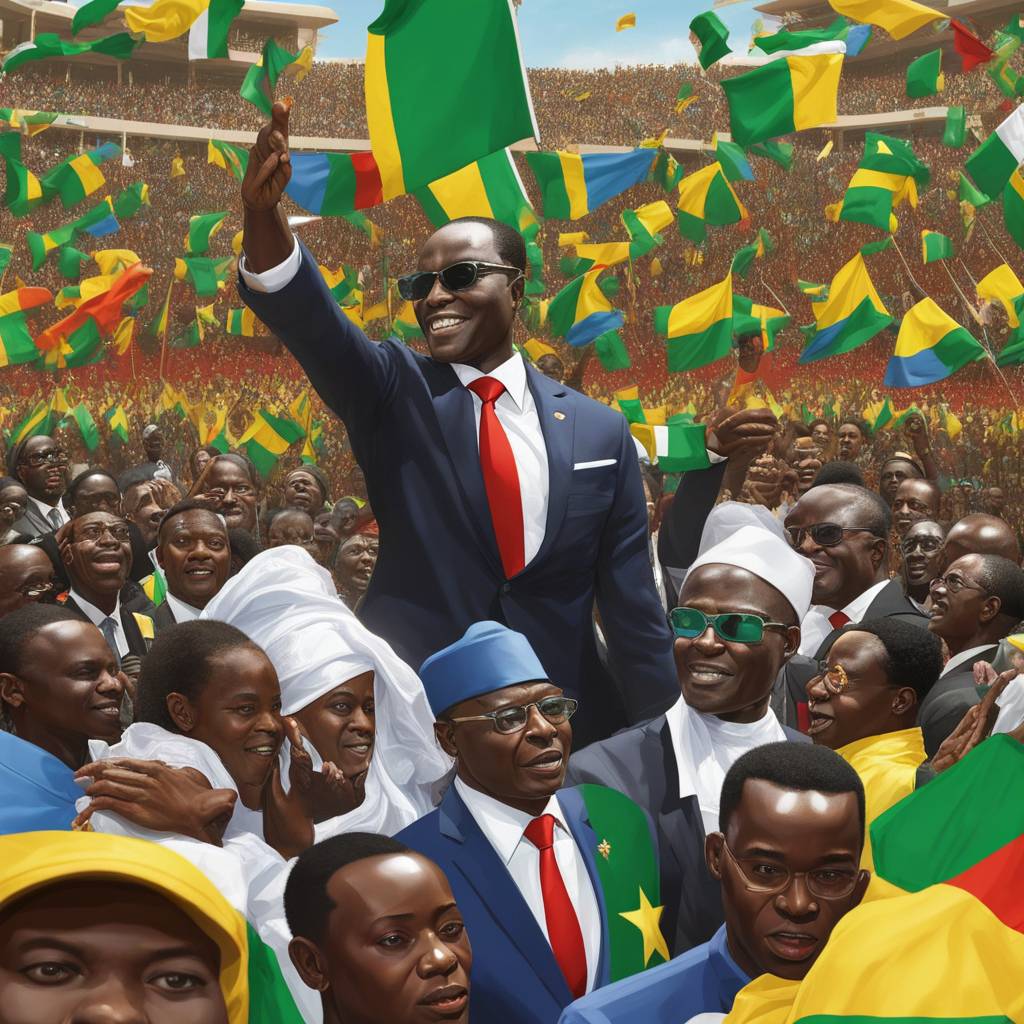Bassirou Diomaye Faye, a left-wing pan-Africanist, was inaugurated as the president of Senegal at the age of 44, making him the country’s youngest president. Faye won the March 24 elections in a landslide victory on a platform of reform. In his inauguration speech, he pledged to faithfully fulfill his duties as president and uphold the constitution and laws of the country. Faye also expressed his commitment to defending the integrity of Senegal’s territory, ensuring national independence, and working towards African unity. The formal handover of power from outgoing President Macky Sall will take place at the presidential palace in Dakar.
Faye’s rise to power was a dramatic one, as he was released from prison less than two weeks before the election, along with his mentor Ousmane Sonko, due to a political amnesty announced by Sall. The election and Faye’s victory tested Senegal’s reputation as a stable democracy in West Africa, amid concerns of unrest and potential constitutional term limit violations. His campaign focused on fighting corruption, better managing Senegal’s natural resources, and addressing the issue of widespread unemployment, particularly among the youth. Faye’s victory was seen as a reflection of the will of young people who were frustrated with the status quo and perceived ties between Senegal and former colonial ruler France.
In his first speech as president-elect, Faye reiterated his commitment to fighting corruption and implementing economic reforms. Known as “Diomaye” or “the honourable one” in the local Serer language, Faye is a practicing Muslim from a small town with two wives. Before the election, he demonstrated transparency by releasing a declaration of his assets, which included a home in Dakar, land outside the capital, and in his hometown, as well as bank accounts totaling roughly $6,600. Faye’s presidency marked a turning point in Senegal’s history, as he vowed to address the country’s challenges and work towards progress and development for all its citizens.
Faye’s presidency was seen as a victory for democracy and the rule of law in Senegal, following a period of unrest and political tensions. The election results reflected the desire of the Senegalese people, particularly the youth, for change and a government that would prioritize their interests. Faye’s promises to clean up corruption, manage the country’s resources more effectively, and address the issue of unemployment resonated with many voters who were disillusioned with the previous administration. His inauguration marked a new chapter in Senegal’s political landscape, with hopes for positive change and progress under his leadership.
The election and inauguration of Faye as president highlighted Senegal’s commitment to democracy and peaceful transitions of power. Despite challenges and tensions leading up to the election, Faye’s victory was celebrated as a historic moment for the country. His swearing-in ceremony symbolized a new era of governance and leadership in Senegal, with a focus on transparency, accountability, and the well-being of its citizens. As Faye assumed his duties as president, he faced high expectations and challenges, including addressing the legacy of corruption and economic mismanagement, as well as promoting social and economic development for all Senegalese people.













